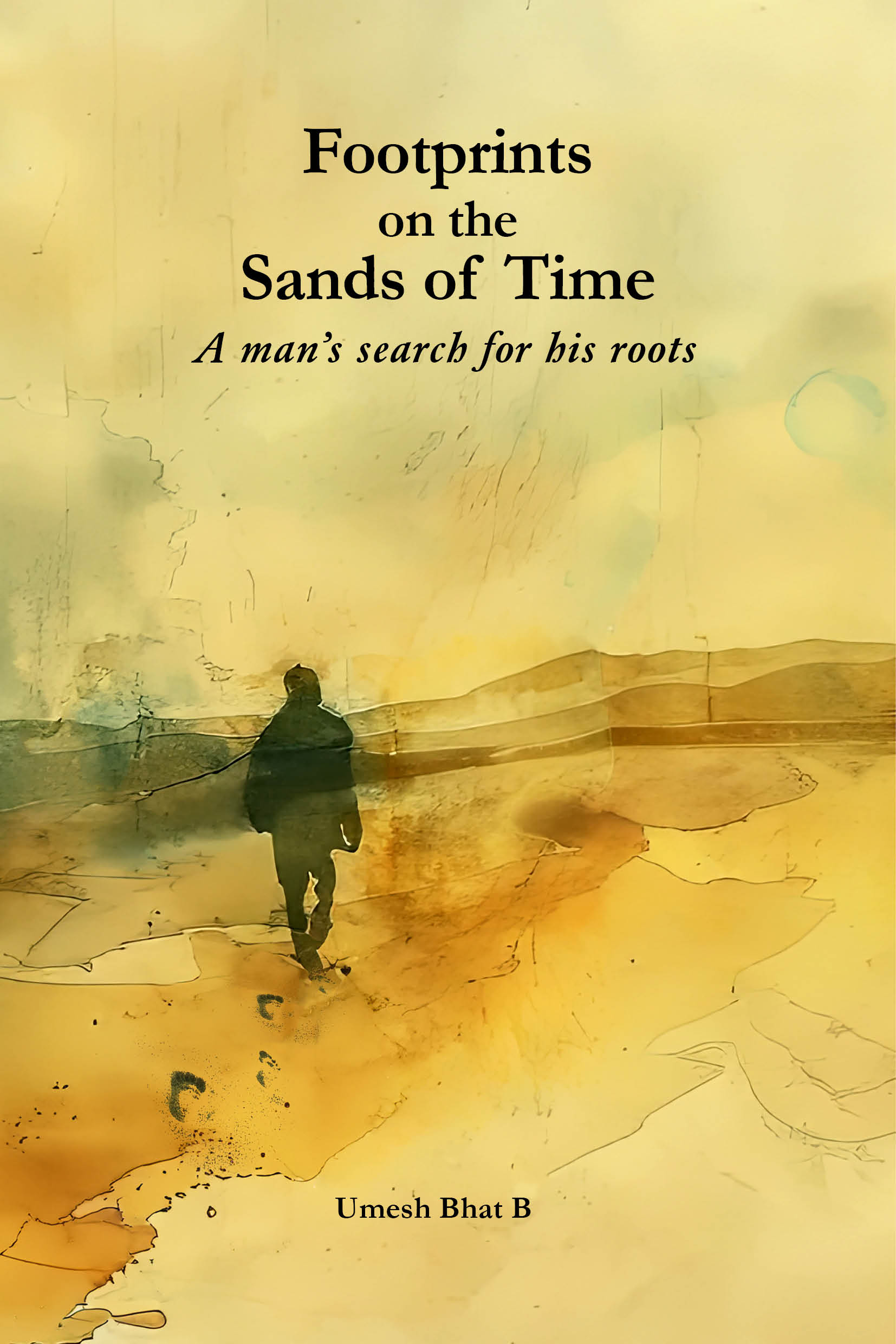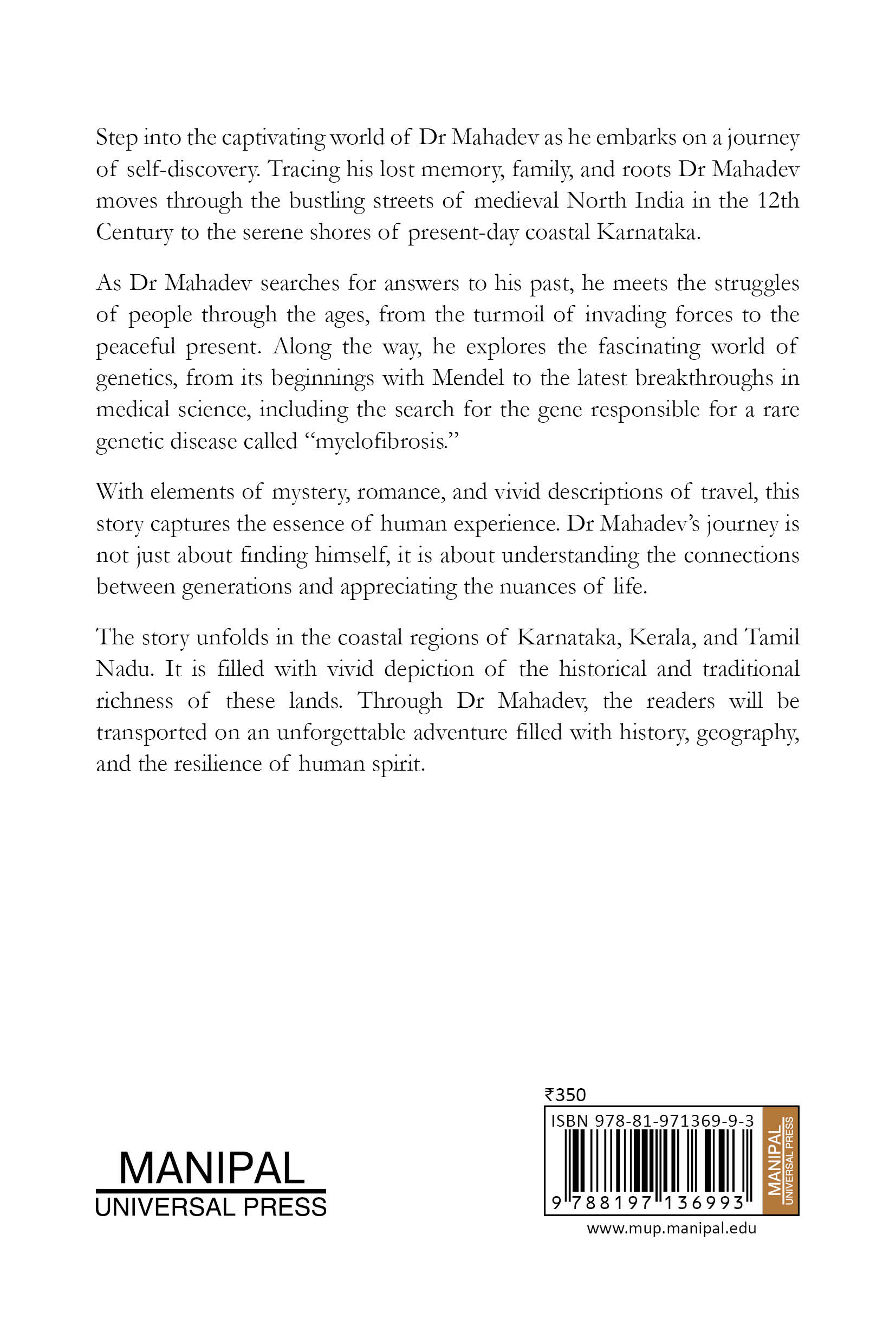Footprints on the Sands of Time
₹350.00
Author: Umesh Bhat B
Step into the captivating world of Dr Mahadev as he embarks on a journey of self-discovery. Tracing his lost memory, family, and roots Dr Mahadev moves through the bustling streets of medieval North India in the 12th Century to the serene shores of present-day coastal Karnataka. As Dr Mahadev searches for answers to his past, he meets the struggles of people through the ages, from the turmoil of invading forces to the peaceful present. Along the way, he explores the fascinating world of genetics, from its beginnings with Mendel to the latest breakthroughs in medical science, including the search for the gene responsible for a rare genetic disease called “myelofibrosis.”
With elements of mystery, romance, and vivid descriptions of travel, this story captures the essence of human experience. Dr Mahadev’s journey is not just about finding himself, it is about understanding the connections between generations and appreciating the nuances of life. The story unfolds in the coastal regions of Karnataka, Kerala, and Tamil Nadu. It is filled with vivid depiction of the historical and traditional richness of these lands. Through Dr Mahadev, the readers will be transported on an unforgettable adventure filled with history, geography, and the resilience of human spirit.
Interested customers may write to us at mup@manipal.edu about purchasing the book.
| Author | |
|---|---|
| Format |













